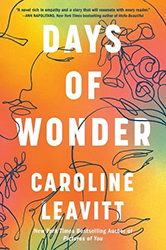Readers who enjoyed Bethany Ball’s What to Do About the Solomons will find myriad pleasures in her second novel. Her debut revealed Ball as the kind of rare cultural “outsider” who miraculously manages to get the texture of Israel just right on the page. Set closer to home, The Pessimists offers hauntingly memorable characters, and hard-won truths, and when it comes to capturing the zeitgeist of our era, it has few rivals among any recent novel. In a taut and absorbing narrative that often reads like a psychological thriller, the author nimbly reminds us that every utopian veneer contains a strong dystopian potential. Perhaps even more affectingly, it is a profoundly original exploration of people falling in and out of love, with people, with a place.
The novel deftly balances the stories of several families in the affluent community of Somserset, Connecticut. In portraying the decadence of privilege, The Pessimists is often quite funny, yet Ball pursues her themes of societal malaise, parental anxiety and marital discontent with sensitivity and high moral seriousness. Alongside episodes of sharp satire, much of the narrative is informed by delicate and sensitive portrayals of each character’s inner emotional world. The notable exception to those rich interiorities is Agnes, the guru-like director of the Petra School who, though she wields so much power and influence on the parents and children alike, remains a tantalizing cipher until the chilling conclusion.
Ball is especially good at getting at what festers just beneath the deep attachments between friends, the undercurrents of their unrequited desires and resentments. Or, for that matter, those who can never fully belong; for her part, Rachel, the Jewish woman who finds herself increasingly lonely in both her marriage and Somerset itself, fretting that “she didn’t understand Wasp suburban language or its rules.” A transplant from New York City who had hoped for a healthier environment for her children, she recoils from “the lonely spookiness of night in the suburbs.” And it’s an especially interesting, even brave choice that Ball portrays her novelist character Virginia as so distracted by the life of the imagination (though also, to be fair, a serious health scare) that she overlooks, or refuses to see, the looming threat in her own home.
While some might find the treatment of antisemitism oblique, careful readers will recognize that its stain is in fact the very heart of the novel, the rotten core of a self-satisfied, numb, and complacent enclave of privilege. Fast-paced and brimming with intrigue, what most impresses is Ball’s respect for each of her characters, especially their capacity for growth and transformation. Bristling with intelligence and memorable prose, this is a truly vital novel for our inauspicious times, for anyone who doubts the life they are creating for themselves or their children. In short, The Pessimists is a gem of a novel that brilliantly weaves together the threads of each family’s story with compassion, disquieting notes of dread, and gentle humor. It all adds up to an emotionally insightful and profoundly thought-provoking tapestry that will surely leave its readers eager for more.
Ranen Omer-Sherman is the JHFE Endowed Chair in Judaic Studies at the University of Louisville, author of several books and editor of Amos Oz: The Legacy of a Writer in Israel and Beyond.





